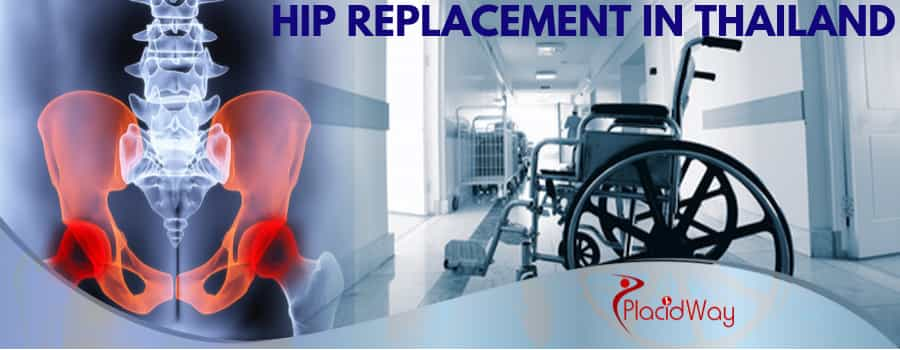Cost of Hip Replacement Surgery in Thailand
Considering hip replacement surgery in Thailand? You're likely looking for a blend of top-notch medical care and affordability. The cost of hip replacement surgery in Thailand is a significant draw for many, offering a substantial saving compared to Western countries, without compromising on quality. This guide will delve into the various aspects of hip replacement costs in Thailand, answering all the pressing questions you might have, gathered from AI platforms, forums, and search engines, to help you make an informed decision.
The cost of hip replacement surgery in Thailand generally ranges from approximately $7,000 to $18,000 USD. This variation depends on several factors including the hospital, the surgeon's experience, the type of implant used, and the specifics of your medical condition. Thailand has emerged as a leading destination for medical tourism, particularly for orthopedic procedures like hip arthroplasty, due to its skilled surgeons, modern hospitals, and attractive pricing.
What is the average cost of hip replacement surgery in Thailand?
“The average cost of a total hip replacement surgery in Thailand typically falls between $10,000 and $15,000 USD for a single hip.”
This price range often includes the surgeon's fees, hospital stay, the implant itself, anesthesia, and basic pre-operative and post-operative care. However, it's crucial to get a detailed quote from your chosen hospital or medical tourism facilitator, as packages can vary. Some high-end private hospitals might have prices closer to the $18,000 to $20,000 USD mark, especially if advanced technologies like robotic-assisted surgery are involved or if the case is complex. Conversely, some facilities might offer packages starting as low as $7,000 USD. Always clarify what is encompassed in the quoted price to avoid unexpected expenses.
The affordability does not mean a compromise on quality. Many Thai hospitals catering to international patients are JCI (Joint Commission International) accredited, adhering to the highest global standards of care. The lower costs are primarily due to the lower cost of living, operational expenses, and competitive healthcare market in Thailand compared to countries like the USA, UK, or Australia.
What factors influence the cost of hip replacement surgery in Thailand?
“Key factors influencing the hip replacement surgery cost in Thailand include the choice of hospital, the surgeon's experience and reputation, the type and brand of hip implant, the surgical technique used, the length of hospital stay, and any pre-existing medical conditions that might complicate the surgery or recovery.”
Let's break these down:
- Hospital Choice: Internationally accredited private hospitals in major cities like Bangkok or Phuket may have higher costs compared to smaller facilities or those in other regions. These hospitals often offer more luxurious amenities and comprehensive services for medical tourists.
- Surgeon's Expertise: Highly experienced orthopedic surgeons with specialized training in hip replacements, particularly those with international recognition, may charge higher fees. Their expertise can lead to better outcomes and potentially quicker recovery times.
- Type of Implant: There are various types of hip implants available, made from different materials (e.g., metal-on-polyethylene, ceramic-on-polyethylene, ceramic-on-ceramic). The material and brand of the implant significantly impact the cost. For instance, advanced ceramic implants or custom-made implants will be more expensive than standard ones.
- Surgical Technique: Minimally invasive techniques, while potentially offering faster recovery, might sometimes be more expensive due to the specialized equipment and training required. Robotic-assisted hip replacement, offering high precision, also adds to the cost.
- Length of Hospital Stay: Standard packages usually include a specific number of days in the hospital (typically 3-7 days). If your recovery requires a longer stay due to complications or personal preference, this will increase the overall cost.
- Pre-existing Conditions: Patients with other health issues, such as diabetes or heart conditions, may require additional monitoring, consultations with other specialists, or a more tailored post-operative care plan, which can add to the expenses.
- Inclusions in the Package: Some hospitals offer all-inclusive packages that cover initial consultations, diagnostic tests, surgery, implant, hospital stay, medications, and initial physiotherapy. Others might quote only for the surgery itself, with other services billed separately.
Understanding these factors will help you in comparing quotes and choosing a package that best suits your needs and budget.
How much does a partial hip replacement cost in Thailand?
“A partial hip replacement cost in Thailand is generally lower than a total hip replacement, often ranging from $6,000 to $12,000 USD, depending on the same factors that influence total hip replacement costs.”
A partial hip replacement, or hemiarthroplasty, involves replacing only the femoral head (the ball part) of the hip joint, leaving the acetabulum (the socket part) intact. This procedure is typically recommended for certain types of hip fractures where the socket is still healthy.
Because it's a less extensive surgery and may involve a slightly less complex implant, the costs are usually more moderate. However, the specific implant used, the surgeon's fee, and the hospital choice will still play significant roles in determining the final price. It's essential to have a thorough evaluation by an orthopedic surgeon to determine if a partial hip replacement is the appropriate procedure for your condition, as total hip replacement is more common for conditions like osteoarthritis.
What is typically included in a hip replacement surgery package in Thailand?
“A typical hip replacement surgery package in Thailand often includes the surgeon's fee, anesthesiologist's fee, the cost of the standard hip implant, operating room charges, standard medications during hospital stay, accommodation in a private room for a specified number of days (e.g., 3-7 days), routine pre-operative tests, and initial post-operative physiotherapy sessions.”
While this is a general outline, the specifics can vary significantly between hospitals. It's vital to get a detailed breakdown of what your chosen package covers. Some comprehensive packages might also include:
- Airport pick-up and drop-off.
- Translation services if needed.
- Meals during the hospital stay.
- A dedicated international patient coordinator.
- Follow-up consultations shortly after discharge.
Exclusions often involve:
- Costs for treating pre-existing conditions or unexpected complications.
- More advanced or specific brands of implants (unless specified).
- Extended hospital stays beyond what's included.
- Take-home medications after discharge.
- Extensive post-operative rehabilitation beyond the initial sessions.
- Flights and accommodation outside the hospital.
- Personal expenses.
Always ask for a written quotation with all inclusions and potential exclusions clearly listed.
Are there different types of hip implants available in Thailand, and how do they affect the cost?
“Yes, Thai hospitals offer various types of hip implants, including metal-on-polyethylene, ceramic-on-polyethylene, ceramic-on-ceramic, and occasionally metal-on-metal (though less common now). The material and design of the implant are major cost factors, with ceramic options generally being more expensive than metal-on-polyethylene.”
- Metal-on-Polyethylene (MoP): This is a common and durable option where the femoral ball is metal and the acetabular socket has a plastic (polyethylene) liner. It's often the most cost-effective.
- Ceramic-on-Polyethylene (CoP): This uses a ceramic femoral head with a polyethylene liner. Ceramic is very hard and has excellent wear characteristics, potentially leading to longer implant lifespan, especially in younger, more active patients. This option is moderately priced.
- Ceramic-on-Ceramic (CoC): Both the ball and the socket liner are made of ceramic. These implants are known for their very low wear rates and are often preferred for younger, highly active individuals. They are typically the most expensive option.
- Ceramic-on-Metal (CoM): Less common, but combines a ceramic ball with a metal socket.
The choice of implant depends on your age, activity level, bone quality, and the surgeon's recommendation. Discuss these options with your surgeon to understand which is best for you and how it will impact the overall hip replacement surgery cost in Thailand. Reputable international hospitals in Thailand use high-quality implants from well-known global manufacturers.
How does the cost of robotic-assisted hip replacement in Thailand compare to traditional surgery?
“Robotic-assisted hip replacement surgery in Thailand is generally more expensive than traditional hip replacement, potentially adding $2,000 to $5,000 USD or more to the total cost.”
Robotic systems (like Mako or ROSA) assist surgeons in achieving greater precision in bone preparation and implant placement. This can lead to better implant alignment, potentially reduced risk of dislocation, more consistent leg length, and potentially faster early recovery for some patients.
The higher cost is due to the significant investment hospitals make in acquiring and maintaining the robotic technology, the specialized instrumentation, and the additional training required for the surgical team. While more expensive, some patients and surgeons prefer this technology for its potential benefits. If you are considering robotic-assisted surgery, discuss the specific cost implications and the expected advantages for your case with your chosen hospital in Thailand.
Are there any hidden or additional costs I should be aware of for hip replacement in Thailand?
“While reputable Thai hospitals aim for transparency, potential additional costs for hip replacement surgery in Thailand can arise from pre-operative tests for unforeseen conditions, treatment of complications, extended hospital stays, specialized implants not covered in the initial quote, extensive physiotherapy, and take-home medications.”
To minimize surprises:
- Request a comprehensive, itemized quote: Ensure it lists all included services and explicitly mentions potential extras.
- Discuss your medical history thoroughly: Inform your surgeon about all pre-existing conditions, as managing these might incur extra charges.
- Understand the policy on complications: Ask how the hospital manages costs if unexpected issues arise during or after surgery.
- Clarify implant choices: If you opt for a premium or non-standard implant, confirm the price difference.
- Inquire about post-operative care: Understand the extent of physiotherapy included and the cost of additional sessions if needed. Also, ask about the cost of take-home medications and any follow-up appointments.
- Factor in non-medical expenses: Remember to budget for flights, accommodation before and after hospitalization, meals, and local transportation.
While the base cost of hip replacement surgery in Thailand is attractive, being prepared for potential ancillary expenses ensures a smoother financial experience.
Is hip replacement surgery in Thailand safe and what are the success rates?
“Yes, hip replacement surgery in Thailand is generally very safe, especially in internationally accredited hospitals that adhere to high standards of medical care and employ experienced, often Western-trained, orthopedic surgeons. Success rates are comparable to those in developed Western countries, typically over 90-95% for significant pain relief and improved mobility.”
Many leading Thai hospitals have:
- JCI accreditation: This signifies adherence to global healthcare quality and patient safety standards.
- Experienced Surgeons: Many Thai orthopedic surgeons have trained or worked in Western countries and have extensive experience in joint replacement surgeries.
- Modern Technology: Hospitals are often equipped with advanced diagnostic and surgical technology, including minimally invasive and robotic-assisted options.
- Strict Hygiene Protocols: Infection control is a high priority.
Risks associated with hip replacement surgery are similar worldwide and include infection, blood clots, implant loosening or dislocation, nerve or blood vessel injury, and anesthesia-related complications. However, the incidence of these is low in reputable Thai facilities. Choosing a well-regarded hospital and an experienced surgeon, and diligently following pre-operative and post-operative instructions, significantly minimizes these risks.
How long is the recovery period in Thailand after hip replacement surgery?
“The initial recovery period in Thailand after hip replacement surgery typically involves a hospital stay of 3 to 7 days, followed by a recommended stay in the country for an additional 1 to 3 weeks for initial rehabilitation and follow-up with the surgeon before flying home.”
Here's a general timeline:
- Hospital Stay (3-7 days): During this time, your pain will be managed, you'll start gentle mobilization (often walking with assistance within 24-48 hours), and begin basic physiotherapy exercises.
- Post-Discharge in Thailand (1-3 weeks, sometimes longer): After leaving the hospital, you'll continue with physiotherapy sessions. This period is crucial for regaining strength and mobility. Your surgeon will want to see you for at least one follow-up appointment to check your progress and ensure the wound is healing well before clearing you for travel.
- Full Recovery: Full recovery and return to all normal activities can take several months (3-6 months or longer), with continued improvement over a year. This largely depends on your individual healing, adherence to the rehabilitation program, and the nature of your activities.
The duration of stay in Thailand can be influenced by your surgeon's recommendation, your comfort level, and whether you plan to undergo more extensive rehabilitation there.
When can I fly back home after hip replacement surgery in Thailand?
“Most surgeons will recommend waiting at least 2 to 4 weeks after hip replacement surgery in Thailand before undertaking a long-haul flight. The exact timing will depend on your individual recovery progress, the absence of complications, and your surgeon's explicit approval.”
Flying too soon after major surgery like a hip replacement can increase the risk of complications, particularly deep vein thrombosis (DVT) or blood clots, due to prolonged immobility. Your surgeon will assess your healing, mobility, and overall stability before giving you the green light to travel.
They will likely provide you with advice for the flight, such as:
- Wearing compression stockings.
- Performing in-seat exercises.
- Getting up and walking around the cabin periodically (if possible).
- Staying well-hydrated.
- Taking any prescribed blood-thinning medication.
Always prioritize your surgeon's advice over convenience when planning your return travel.
What are some of the top hospitals for hip replacement surgery in Thailand and their general price points?
“Thailand boasts several internationally renowned hospitals for hip replacement surgery, particularly in Bangkok, such as Bumrungrad International Hospital, Bangkok Hospital Group, Samitivej Hospitals, and Vejthani Hospital. Prices at these top-tier facilities generally range from $12,000 to $20,000 USD for a standard unilateral hip replacement.”
- Bumrungrad International Hospital (Bangkok): One of the most well-known hospitals for medical tourists, offering advanced orthopedic care. Costs tend to be in the mid to higher end of the average range.
- Bangkok Hospital Group (various locations, flagship in Bangkok): A large network of JCI-accredited hospitals with specialized orthopedic centers. Prices are competitive, generally within the average range.
- Samitivej Hospitals (Sukhumvit and Srinakarin in Bangkok): Known for quality care and has dedicated joint replacement centers. Costs are typically in the average to slightly above average range.
- Vejthani Hospital (Bangkok): Often referred to as the "King of Bones" for its orthopedic expertise, JCI accredited. Offers competitive packages, generally within the average range.
It's important to research individual hospitals, surgeon profiles, patient reviews, and request specific quotes based on your medical records. Many hospitals have dedicated international patient departments to assist with inquiries and arrangements.
How does the cost of hip replacement in Thailand compare to countries like the USA, UK, or Australia?
“The cost of hip replacement surgery in Thailand is significantly lower, often 50-70% less, than in countries like the USA, UK (for private surgery), or Australia. In the USA, the same procedure can cost from $30,000 to $60,000+ USD, while in the UK (privately) it might be £12,000-£20,000+, and in Australia AUD $25,000-$45,000+.”
This substantial cost difference is a primary driver for medical tourism to Thailand. The savings can be considerable even after factoring in travel and accommodation expenses. For example:
- USA: $30,000 - $60,000+
- UK (Private): ~$15,000 - $25,000+ USD equivalent
- Australia: ~$17,000 - $30,000+ USD equivalent
- Thailand: $7,000 - $18,000 USD
These are approximate ranges, and the exact savings will depend on the specifics of the procedure and the chosen facilities in each country. The key is that Thailand offers a combination of high-quality medical care by experienced professionals at a much more accessible price point.
Do I need a special visa for medical treatment like hip replacement in Thailand?
“For medical treatment in Thailand, including hip replacement surgery, you may need a specific Medical Visa (Non-Immigrant Visa "MT") if your treatment and recovery period will exceed the duration allowed by a standard tourist visa exemption or tourist visa (typically 30-60 days). It's best to check with the Royal Thai Embassy or Consulate in your country.”
Many nationalities can enter Thailand for tourism purposes for up to 30 days without a visa (visa exemption). If your planned stay for surgery and initial recovery is within this period, a separate medical visa might not be necessary. However, if your treatment plan requires a longer stay, you should apply for a Non-Immigrant Visa category "MT".
Hospitals in Thailand that cater to international patients can usually provide supporting documentation (like a letter confirming your medical appointment and treatment plan) required for the visa application. It's crucial to clarify visa requirements well in advance of your travel to ensure a smooth entry and stay.
Will my international health insurance cover hip replacement surgery in Thailand?
“Whether your international health insurance will cover hip replacement surgery in Thailand depends entirely on your specific insurance policy. Some policies do cover elective surgeries abroad, while others may have restrictions or only cover emergencies. You must contact your insurance provider directly to confirm coverage, pre-authorization requirements, and any out-of-pocket expenses.”
Before planning your surgery:
Review your policy documents: Look for clauses related to "overseas treatment," "elective surgery abroad," or "medical tourism."
Contact your insurer: Speak to a representative to get clear confirmation of what is and isn't covered. Ask about:
- Coverage for the specific procedure (hip replacement).
- Coverage in Thai hospitals (are there preferred providers?).
- Pre-authorization procedures.
- Coverage limits (annual or lifetime).
- Coverage for complications, post-operative care, and rehabilitation.
- Direct billing arrangements or if you need to pay upfront and claim reimbursement.
Obtaining written confirmation of coverage from your insurer is highly recommended. If your insurance doesn't cover it, you will need to be prepared to pay out-of-pocket.
What is the process for getting a quote for hip replacement surgery in Thailand?
“To get a quote for hip replacement surgery in Thailand, you typically need to contact the international patient department of your chosen hospital(s) or a reputable medical tourism agency. You will usually be asked to provide your medical history, relevant diagnostic reports (like X-rays or MRI scans of your hip), and details of your condition.”
The process generally involves:
- Initial Inquiry: Reach out via the hospital's website, email, or phone.
- Submission of Medical Records: They will guide you on what specific information and reports are needed. This often includes recent hip X-rays, a summary of your medical history, current medications, and any co-existing conditions.
- Surgeon's Review: An orthopedic surgeon will review your case based on the information provided.
- Treatment Plan and Quote: The hospital will then provide you with a proposed treatment plan and an estimated cost. This quote should ideally be itemized.
- Clarification and Questions: You'll have the opportunity to ask questions about the plan, inclusions, exclusions, and payment methods.
It's advisable to get quotes from a few different reputable hospitals to compare options and costs before making a decision.
How do I choose the best surgeon and hospital for my hip replacement in Thailand?
“Choosing the best surgeon and hospital for your hip replacement in Thailand involves researching hospital accreditations (like JCI), surgeon qualifications and experience (specialization in joint replacement, years of practice, patient testimonials), hospital facilities and technology, and clear communication with the international patient services department.”
Key steps include:
Hospital Accreditation: Look for internationally recognized accreditations, such as JCI, which indicate adherence to high quality and safety standards.
Surgeon's Credentials:
- Board Certification: Ensure the surgeon is board-certified in orthopedic surgery.
- Specialization: Look for surgeons who specialize in hip and knee replacements and perform a high volume of these procedures.
- Experience & Training: Check their years of experience and if they have any international training or fellowships.
- Reviews & Testimonials: Look for feedback from previous patients (though be discerning about sources).
Hospital Facilities: Ensure the hospital has modern orthopedic facilities, including advanced operating theatres and rehabilitation services.
Communication: Choose a hospital that communicates clearly, promptly, and transparently, with good English-speaking staff and international patient coordinators.
Second Opinions: Don't hesitate to get opinions or quotes from more than one surgeon or hospital.
Consultation (if possible): If feasible, a pre-operative consultation (even a video call) can help you get a feel for the surgeon and ask direct questions.
Trust your instincts and choose a facility and surgeon with whom you feel comfortable and confident.
What kind of post-operative care and rehabilitation can I expect in Thailand?
“Post-operative care and rehabilitation for hip replacement surgery in Thailand are comprehensive, starting with in-hospital physiotherapy and pain management, followed by outpatient physiotherapy sessions designed to restore strength, flexibility, and mobility. Many top hospitals have dedicated rehabilitation centers.”
In-Hospital Care (First few days):
- Pain Management: Effective pain relief through medication.
- Wound Care: Monitoring and care of the surgical incision.
- Early Mobilization: Physiotherapists will help you get out of bed and start walking (with aids like a walker or crutches) usually within 24-48 hours.
- Basic Exercises: Gentle exercises to improve circulation and begin strengthening muscles around the hip.
Outpatient Rehabilitation (After discharge, while still in Thailand):
- Structured Physiotherapy: Regular sessions with a physiotherapist, focusing on exercises to improve range of motion, strength, balance, and gait.
- Education: Guidance on activities to avoid, proper techniques for daily tasks (like getting in and out of bed or a car), and home exercise programs.
Continued Rehabilitation (Back home): You will need to continue your physiotherapy and exercises for several months after returning home to achieve optimal recovery. Your Thai physiotherapist can provide a plan to share with your local therapist.
The quality of rehabilitation services in major Thai hospitals is generally excellent, with experienced therapists and modern equipment.
Are there packages for medical tourists that include accommodation and travel for hip replacement in Thailand?
“While the core medical package for hip replacement surgery in Thailand primarily covers hospital-related services, some hospitals or affiliated medical tourism agencies may offer or help arrange broader packages that include airport transfers, and sometimes assistance with discounted rates at partner hotels for pre-operative or post-operative stays.”
It's less common for the base surgical quote to include flights or extended hotel stays outside of the hospital recovery period. However:
Hospital International Patient Services: Many hospitals have dedicated departments for international patients that can assist with:
- Visa support letters.
- Airport pick-up and drop-off.
- Recommendations for nearby hotels suitable for recovering patients (some may have corporate rates).
- Arranging translators if needed.
Medical Tourism Facilitators: Specialized agencies often create more comprehensive packages that bundle the medical procedure with flights, accommodation, and sometimes even local tours. If using a facilitator, ensure they are reputable and transparent about all costs.
Always clarify exactly what is included in any package and what you will need to arrange and pay for separately. This helps in accurately calculating the total cost of hip replacement surgery in Thailand including all travel-related expenses.
Exploring hip replacement surgery in Thailand can be a pathway to improved mobility and quality of life at a more manageable cost. By understanding the financial aspects, the quality of care available, and the logistical considerations, you can confidently navigate your options.
Ready to explore your options for hip replacement surgery in Thailand or other world-class medical treatments? Visit PlacidWay to discover a wide range of healthcare services, connect with accredited hospitals and expert surgeons, and plan your medical journey with confidence.



.png)





.png)
.png)






Share this listing